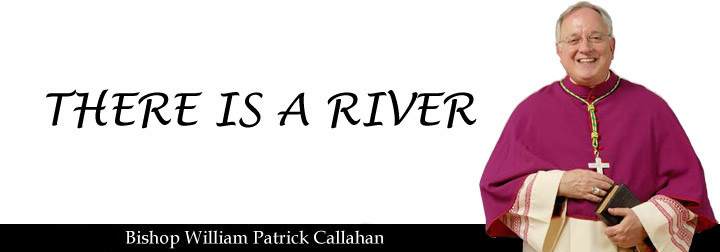Given our present state of affairs, I’ll be celebrating Mass privately this Sunday at 9:30 a.m. at the Cathedral of St. Joseph the Workman. I hope you will join me at diolc.org/live. If you can’t make 9:30, the Mass may be viewed on demand at the same link throughout the day. It grieves me to be physically separated from you during this prudent effort to stop the spread of the virus by temporally limiting gatherings. I’m fervently praying for a resolution to this spread, and begging God to bring us back together once again.
Several days ago, I had the opportunity to speak with a friend concerning “private Masses” and the Catholic notion of “Spiritual Communion.” She is younger than I and like most Catholics younger than I, missed out on some of the elements of Catholic doctrine that many folks my age take for granted and learned early on—thankfully—in our wonderful Catholic elementary schools at the hands of the good sisters who ran our education system in those days.
Nevertheless, as we talked about “private Masses” I took the opportunity to remind my friend about the fact that through the Catholic practice of Spiritual Communion, many of our brothers and sisters who were unable to receive sacramentally (for one reason or another) had a moment of deep and sincere communion with our Blessed Lord spiritually.
In his encyclical, “Ecclesia de Eucharistia” (“A Eucharistic Church”), in April 2003, Pope Saint John Paul the Great encouraged the practice of Spiritual Communion, “which has been a wonderful part of Catholic life for centuries and recommended by saints who were masters of the spiritual life.” St. Thomas Aquinas described it as “an ardent desire to receive Jesus in the most holy sacrament and lovingly embrace him” at a time or in circumstances when we cannot receive him in sacramental Communion. These days of the dreadful coronavirus pandemic, when our priests are limited to the private celebration of the holy Mass, demonstrate the wisdom of the Church as She shares this great spiritual gift for us in these extraordinary and difficult times.
The Catechism of the Council of Trent devoted a special section to Spiritual Communion in its program of renewal in the late 16th century. In the past, instruction manuals gave as a most familiar example, a mother’s need to stay home from Sunday Mass to care for a sick child, thereby missing the opportunity for Communion. In such cases, the mother could make an act of Spiritual Communion, uniting herself with the Mass in her parish church and receive the spiritual benefit of Holy Communion. The opportunities for receiving Spiritual Communion are limitless, but the particular circumstances make it appealing and pertinent for our time. Today, there are many Catholics who may not be able to receive Communion because of a marriage not recognized by the Church. They are often in a process of getting their marital status rectified through the Church Tribunal, but until that is done, they cannot participate.
It is important for us to keep in mind that the current situation regarding “health warnings” and “social distancing” are not being forced on society—and especially upon the Church—in some sort of atheistic or secular closure of the Church. This current health crisis and its governmental intervention is a temporary difficulty and sadness that for us, as Catholics in particular, affects our spiritual lives.
We will recover from this pandemic and its dreadful effects with the help of God. In the meantime, the Church in Her ever inspired and wonderful love of Almighty God for His children provides us with abundant grace and proximate care for us to be with Him and receive Him spiritually in our hearts and souls until such time as we are able, once again to receive sacramental absolution as necessary and to attend holy Mass and receive our Blessed Lord in the Source and Summit of our lives in the Most Blessed Sacrament.
O, Sacrament most Holy, O, Sacrament Divine, All praise and all thanksgiving, be every moment Thine!
